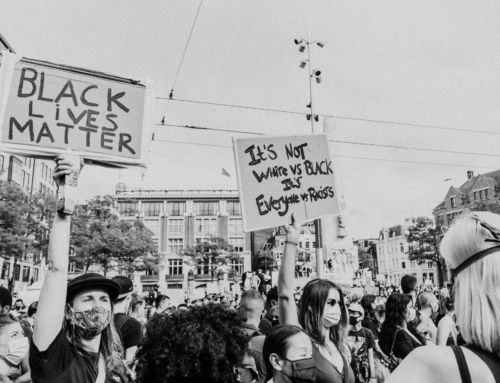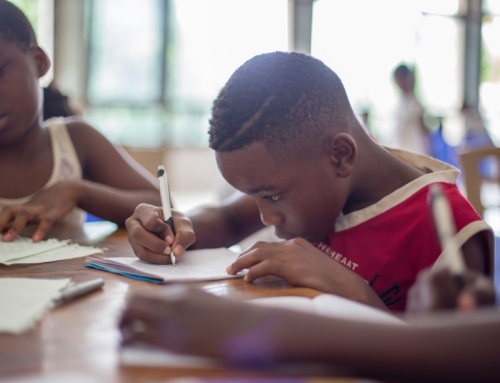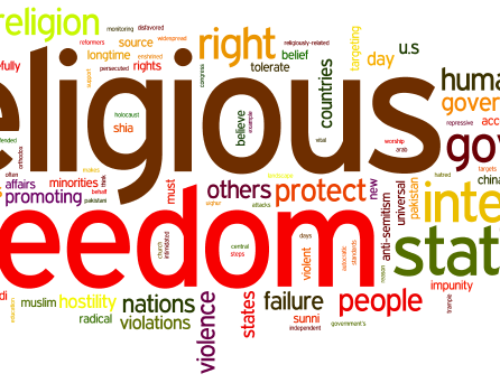José Luis Vilson is a full-time math teacher, writer, speaker, and activist in New York City, NY.
He is the author of This Is Not A Test: A New Narrative on Race, Class, and Education and has spoken about education, math, and race for a number of organizations and publications, including the New York Times, The Guardian, TED, El Diario /La Prensa and The Atlantic. He’s a National Board Certified teacher, a Math for America Master Teacher, and the Executive Director of EduColor, an organization dedicated to race and social justice issues in education.
When the pandemic hit and schools around the country moved teaching and learning to online platforms, I watched José make choices to engage his students in the subject of math in what I perceived to be still deeply connected and caring. I watched his Instagram feed become a combination of high-impact online math videos, emphatic quotes about disaster learning, and snapshots of his son’s grinning smile and bare feet in the bed capturing the gratitude he had for being able to be home with his family. In all his commitment, joy and fortitude, I wondered how he was doing personally and what he was learning about and preparing for to respond to the impact of COVID-19 on his students and his community.
In our edited conversation below, Jose talks vulnerably about how he feels in his mind, heart and body as an educator during COVID-19. He also speaks candidly about the things we should be considering as adult educators in relationship to the young people whom we are in community with. He reminds us that being committed to systemic, equitable change for young people and ourselves is heart work, not head work.
I encourage you to take a little time and read it all the way through. Listening to folxs like José is what will help us Re-Imagine Education so young people can be free.
SS: Starting off our questions…how are you and what have been your hopes for yourself as an educator during this time?
JLV: I’ll just say I’m blessed. I mean, I pray on that daily. Feeling like being connected to my more spiritual self, to my physical self, you know, to this moment, is really important. To have a really conscientious understanding of the moment has been very powerful in terms of assuring that everything I’m trying to do is somehow aligned. I don’t always do a good job of that alignment, but at the very least, I’m closer than I may have been maybe even a few months ago. I think also just generally, you know, I’m alive. I kid you not: I log into Facebook and eight out of the first ten posts was: “a family member has COVID”, “a family member passed away from COVID”, “I have COVID”. I have friends who were months into their pregnancy, and they got COVID while the child was inside of them. And it’s like, oh my god, I just cannot imagine. We need to start leaning on grace, we need to go deeper into empathy. There is an inequity there around feeling. So, for you to ask me how I feel. I feel like—that’s dope. Because not a lot of people get asked how they actually feel.
SS: Has the information and the different feelings you’ve had or that you’ve witnessed people having informed or shifted your teaching practice at all?
JLV: Something that I didn’t quite gather until this pandemic hit was that my connection to the classroom is very much about the body. It is a physical experience of being in the classroom. We’re still having the kids but is not the same as having a classroom with kids in it. And I felt that very hard in the beginning. My sleep schedule started shifting and I would wake up at random times and go to sleep at random times. I couldn’t tell whether I was coming or going that first week. I tried to replicate the school day and I very quickly found out that it wasn’t going to work for anybody involved. By day four I was like: “I’m going to divide whatever the workload is by 50%. And then I’m going to divide the expectation of that 50% by another 50%. I was at 25% of the original thinking that I had around any of this stuff and it has made my life so much easier. We have to learn how to be okay with certain things. I get stressed out when kids don’t hand in an assignment, but then there are those kids who won’t show up for an entire week, but then on a Sunday night, all of a sudden, you start seeing the notifications fly because they’re creating their own schedule. So, the news has definitely been affecting me in very, very profound ways.
SS: I hear that it’s been good to shift expectations around assignments and the work of school, but that it’s been hard to feel the relationships with students shifting by not being in physical proximity to them. I’m also hearing you say that you have real fear when they don’t show up and wonder if something might be going on with their family in the context of where we are. Or if they, too, are feeling that kind of mental exhaustion you were talking about earlier and they’re really needing something different than what we expect of them.
JLV: Right. I mean, when you look at a map of COVID cases laid out according to zip code, you start realizing that so many of the “quote, unquote” “essential workers” are the folks who we disregarded for so long. And my school is in the center of one of those districts. And, lo and behold… I personally have a student whose father passed away and from COVID. I hadn’t heard from this student in a while. And then I got a message from her saying: “I’m gonna try my best, Mr. Vilson, to get this work into you, but my father passed away, so I’ll just try my best.” And I was like: “No, No, No, you don’t have to worry about my work at all. Take your time. It will still be there. It’s not going anywhere.” When I think about so many of my colleagues across the country you can tell that there are folks who are like “oh, well, this kid disappeared and that means they don’t care about their education.” No, actually, it’s US. We need to have a rethink about the things that we’re doing as adults, and how much more we can dig into this grace into this empathy in a real powerful way.
SS: Right, and not asking kids to do more, because there is often a lack of power analysis that comes with that ask. For example, home may be a place that is really asymmetrical to the resources—even limited ones—that schools can provide: food, technology, gyms or athletic fields etc. This is magnified for students who are experiencing homelessness or housing insecurity. We really need adults to connect the dots to the fact that these conditions are reflective of historical, systemic conditions of inequity. Racism, classism, white supremacy culture… and then work to shift in response to that understanding. You’ve spoken before about the difference between working with kids and not for or at/on kids. How would you help educators to work with students during this time versus at/for them?
JLV: I think it goes back to how you are as a person and how that connects to you as an educator. I think there are some educators right now who are frankly lost because without the classroom they’re not able to strictly organize their students according to how they feel like they can. Some teachers want to have every kid be there in front of them at 11 o’clock in the morning. And then they get to lecture at them for those 30 minutes and that’s their vibe: everybody has to go on mute while this person is talking. I think, instead, record a video of yourself giving a lesson so that a student can go at their own pace, and then turn assignments in. Then you can have a conversation about the assignment until the assignment is done to satisfactory completion. And you do it in a way where you’re asking more questions than giving a whole bunch of statements. “I’m curious about blank” “I noticed that you did this. Can you tell me more about why you approach it this way?” “Oh, you may have missed this step. Can you tell me more about how we got from here to here.” Trying to shift the focus from teacher directive to more “A+B” (Teacher +Student). And I’m not trying to give them too many tools to learn. That’s another thing too–there’s probably a lot of people out there trying to make sure students get five or six tools down. And I’m like, no, no, no–just give them the one or two essential things. Try to make it easy because the more data that we put out there for different people the more susceptible we make our kids. That’s a really critical elements of all of this.
SS: Can you say more about that?
JLV: Zoom was the most popular online platform for many educators in New York City and people were mad because the NYC DOE took it away and decided instead to go with Microsoft Teams and then later went on to use Google Meet. We didn’t find out until a little later on that Zoom was literally giving data to Facebook on every single body who participated in Zoom. That’s an invasion that the student did not ask for! There are literally FERPA laws against that sort of thing. Long story short, I feel like we need to be more thoughtful about the way that data gets collected and gets monetized. And I know that when any product is free, it’s not actually free. It just means that we’re the product.
SS: What do you see is the work we have to do–and likely have always had to do-to receive our young people who are coming back from this trauma?
JLV: One of the things I got to advocate for in front of New York City Council was: take an actual human inventory of the things that have happened, the things that were lost, the things that we need to heal from. And I don’t use the word healing lightly. Being able to say to ourselves: which of our students have, quote unquote, “essential workers” as family? And I do mean, “quote, unquote” because they weren’t [considered] essential before, but now they’re essential. Which of our students have folks who have been on the frontlines of this pandemic? And how do you think that’s affected their educational attainment? How many of our students have parents who passed away? And how is that affecting their educational attainment? How many of our teachers actually know what our school’s mission and vision is? And then how are we going to change our school’s mission and vision to better reflect the moment of this time? What is our positionality in all of this and how do community members view our school in relation to them? Those are all the intangibles that you can’t always find in a fancy spreadsheet. I’ve mentioned this a bunch of times, but how can you get students to fully trust you with their minds if you’re not even getting a chance to actually get to know them? You have to get to know them in order for them to trust you with their brains. I didn’t think that was that difficult, but for too many of us it is. So that’s the conversation we all need to be having week one of whenever that is that we come back.
SS: I even think about that for teachers and other adults returning. What’s the work y’all need to consider in relationship to each other to build real trusting relationships, vulnerable relationships. And really providing that space in those early days of Professional Development to actually make room for y’all’s whole humanity, too. What question do you want to be asked by your district, by your school, by your colleagues when you come back?
JLV: How’s your son? How’s your family? How’s your neighborhood? How have things changed for you since we last saw each other face to face? What do you think you’ve been able to accomplish? What are some things that you’ve thought about that are reflection points since the last time we saw each other? Has anything changed as far as your orientation about the things we need to do within the school community? Those are things that I would like to be asked on a professional level. We need to just try to be human beings. Anytime you ask me questions about academics, I’m like, you better have asked me five questions about anything social-emotional before we even get into all that other stuff. I think I might have flipped a little in the last staff meeting we had because I was like “why are we even talking about gaps right now?” There’s no such thing as a gap right now. Everybody is not in school! The vast majority of folks are not in school. Why are we talking about gaps? We should be talking about how the kids are doing? How do they feel? We should ask them how are you feeling? How are you doing with all this?
SS: I couldn’t agree more. Thank you so much for sharing your thoughts and feelings. My final question is: what’s bringing you joy?
JLV: Last night, the National Council of Teachers of Mathematics had me and Marian Dingle for a panel. Well, it was more of a webinar and we were talking about how to get from equality to equity and justice in mathematics. We broke the record and had over 800 people on the webinar! I even got into reparations! It was soulful and deep. We did it for the culture, we did it for our people, but then the white people also felt like they were in the conversation. So, we were able to straddle this line where we’re able to invite numerous folks in math and non-math and all sorts of different folks came through. My family always bring me joy, my eight year old is the light of my life. We have our things here and there, but it’s been great. Fathering him. Generally, I just, you know, I do these things. I’m not very good with self care, but I’m really good with community care. So I’m very good at checking in with people trying to build things and imagine, and have conversations with people about different things. That I can do all day.





